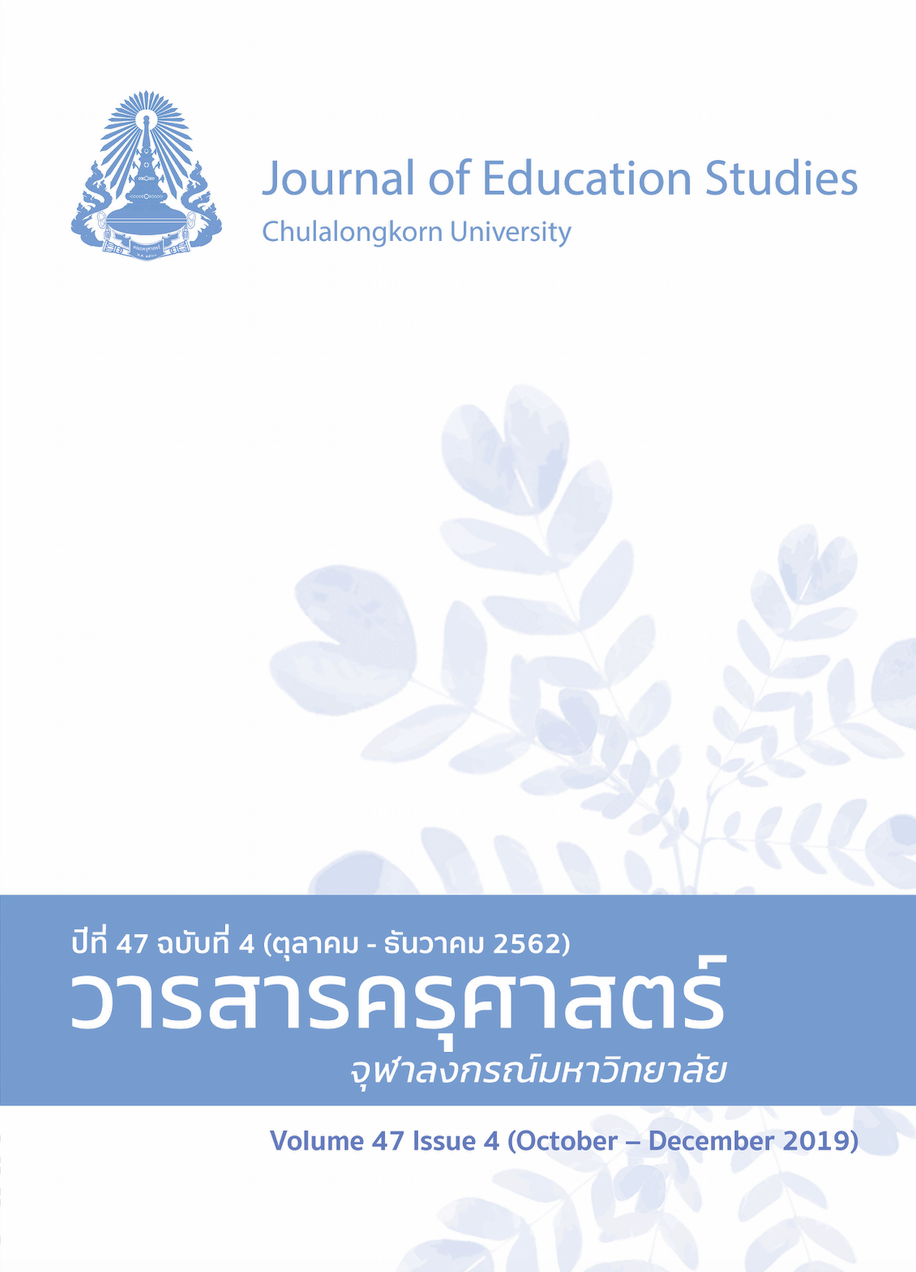Factor Affecting to Develop Critical, Creative, Productive, and Responsible Mind (CCPR) of Higher Education Students in Communication Arts in Private Higher Education Institutions
Keywords:
CRITICAL THINKING, CREATIVE THINKING, PRODUCTIVITY, RESPONSIBILITY, FACTOR AFFECTING TO DEVELOP CCPR SKILLS, AWARENESSAbstract
The main objectives of this quantitative and qualitative study were to guage the awareness of students studying commucation arts in private higher education institutions concerning CCPR, to determine the factors that affected the development of CCPR, to obtain information about the awareness of CCPR, 383 students studying communication arts were asked to cpmplete the questionnaire. Thirty-six administrators and instructors from nine private higher education institutions were interviewd in-depth to obtain information about the factors affecting the development of CCPR.
The results are as follows: Students’ awareness about CCPR in general was high. In terms of itemization, the productive and critical aspects were high followed by responsible creative and respectively. In addition, the size of the institution affected students’ awareness in that big and medium-sized institutions greatly affected their students’ awareness, respectively while a small institution averagely. The factors affecting the developing of CCPR were administrators by sub-factors; policy attitude, instructor by sub-factors; values teaching program, students by sub-factors; position background attitude and extra-curricular by activities both in class and everyday life.
References
จ็อบสตรีทดอทคอม. (2557). องค์กรในฝันบัณฑิตใหม่ มั่นคงเงินเดือนสูงมีซีเอสอาร์. สืบค้นจาก http://profnet.igetweb.com/index.php?mo=3&art=41969313
ทิศนา แขมมณี. (2554). ทักษะการคิดวิเคราะห์ สังเคราะห์ สร้างสรรค์ และการคิดอย่างมีวิจารณญาณ: การบูรณาการในการจัดการเรียนรู้. กรุงเทพมหานคร: สำนักธรรมศาสตร์และการเมืองราชบัณฑิตยสถาน.
พรทิพย์ ศิริภัทราชัย. (2555). STEM Education กับการพัฒนาทักษะในศตวรรษที่ 21. วารสารนักบริหาร Executive Journal, 33(2), 49-56.
ไพฑูรย์ สินลารัตน์ และ คณะ. (2554). CCPR กรอบแนวคิดใหม่ทางการศึกษา. กรุงเทพมหานคร: โรงพิมพ์แห่งจุฬาลงกรณ์มหาวิทยาลัย.
ไพฑูรย์ สินลารัตน์. (2549). หลักเจ็ดประการสำหรับการเปลี่ยนแปลงการศึกษาเข้าสู่ยุคเศรษฐกิจฐานความรู้. กรุงเทพมหานคร: คณะครุศาสตร์จุฬาลงกรณ์มหาวิทยาลัย.
วัลลภา เทพหัสดิน ณ อยุธยา. (2538). กิจการนักศึกษายุคโลกาภิวัฒน์. กรุงเทพมหานคร: สมาคมสถาบันอุดมศึกษาเอกชนแห่งประเทศไทย.
สุมณฑา พรหมบุญ. (2540). การปฏิรูปการเรียนรู้ตามแนวคิด 5 ทฤษฏี. กรุงเทพฯ: ไอเดียสแควร์.
ภาษาอังกฤษ
Almasi, J. F., & McKeown, M. G. (1996). The nature of engaged reading in classroom discussions of literature. Journal of Literacy Research, 28(1), 107-146.
Halpern, D. F. (1996). Thinking critically about critical thinking. Mahwah, NJ: Lawrence Eribaum Associates.
Ruggierio, V. (1996). War markets: Corporate and organized criminal in Europe. London: Middlesex University.
Torrance, E. P. (1971). Are the torrance test of creative thinking biased against or in favor of “Disadvantaged” groups?. Georgia: Department of Educational Phychology, University of Georgia.
Yamane, T. (1973). Statistic: An introductory analysis. New York: Harper and Row.




